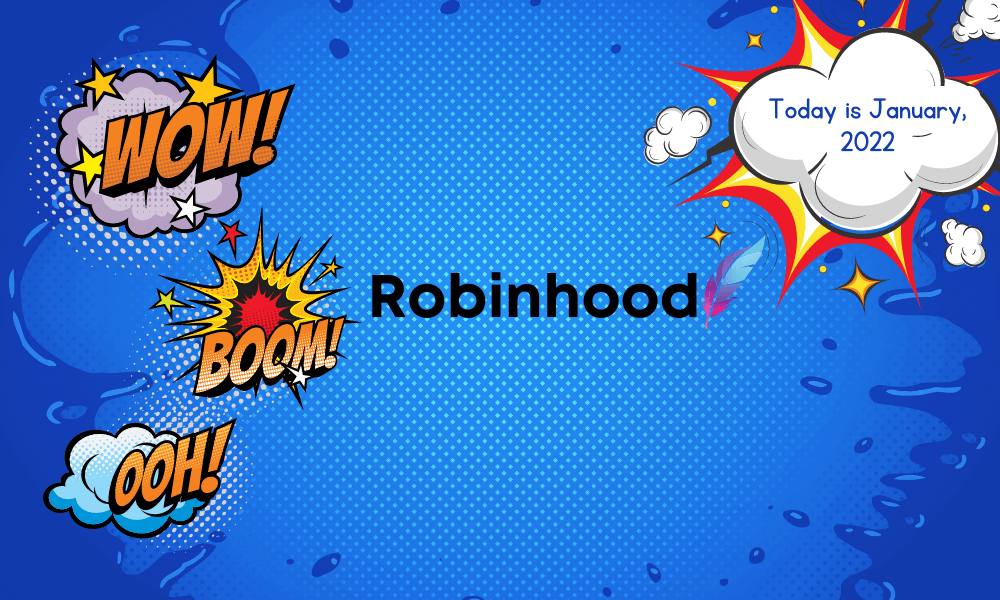
Jan 27 (Reuters) - Robinhood Markets Inc (HOOD.O) became a household name ahead of its stellar IPO last year when retail investors used its trading app to drive shares of GameStop and other "meme stocks" into the stratosphere. Still, name recognition has not helped its share price lately.
"The market is not being very patient with them," said Greg Martin, co-founder and managing director at Rainmaker Securities, a brokerage specializing in private company deals.
Waning investor interest in retail trading has weighed on the commission-free online brokerage shares, which saw explosive growth at the beginning of 2021 as retail investors gobbled up viral stocks, including GameStop (GME.N) and AMC Entertainment (AMC.N). Robinhood's monthly active users jumped from 11.7 million at the end of 2020 to 21.3 million at the end of June 2021.
California-based Robinhood achieved a valuation of $31.8 billion on its initial public offering in July. But it has slumped since then and closed Wednesday down 85% from its 52-week high.
In addition to smaller trading volumes, analysts cited regulatory scrutiny of Robinhood's primary source of revenue: order flow it sells to market makers.
"They've got a global brand, which they basically did with zero marketing. Now, they need to create more long-lasting revenue streams that are more sustainable," said Martin.
One analyst said Robinhood needs to find a way to get its share price up, or it could become a takeover target.
Robinhood declined to comment but has said it continues to gain customers as it adds new products and features and expects that trend to continue. The company, which offers stock, options, and cryptocurrency trading, reports fourth-quarter earnings on Thursday afternoon.
Like many tech start-ups, Robinhood has yet to profit as a public company. Its two-quarters of results have so far disappointed investors.
Robinhood's modest gains in revenue have been driven mainly by a surge in crypto trading in the second quarter. Stock trading activity has eased from peaks during last year's trading frenzy, partly offset by a rise in options volumes.
Robinhood's average revenue per user swooned to $65 in the third quarter from $137 in the first quarter of 2021.
Analysts agree the company must expand its offerings to survive in a crowded space, especially if U.S. stock prices fall further from record highs as expected with the Federal Reserve preparing to raise interest rates.
Chaim Siegel, founder and head of U.S. equity research at Elazar Advisors, called rising interest rates a critical threat.
"So many high-flying, no earnings or low-earnings companies have just been hit very hard in the last two months," said Siegel, who downgraded Robinhood to neutral in August.
Last week, investors sold stocks as they grappled with changing Fed policies and tension between Russia and Ukraine. Wall Street posted its most significant weekly decline since early in the pandemic in March of 2020.
Rising interest rates will probably push investors into safer assets, and many could cut positions in stocks or crypto. That could mean more miniature trading for retail investors, the core of Robinhood's customer base.
"A ton of them are going to lose money, then lose interest," said Jeff Tomasulo, chief executive officer of Vespula Capital Management.
According to Securities and Exchange Commission (SEC) data, retail trading volume peaked in January 2021, making up nearly 27% of U.S. stock trading volume, Securities and Exchange Commission (SEC) data. By November, retail trading volume had declined to 21.42% of total market volume.
SEC CRACKDOWN
The U.S. Securities and Exchange Commission (SEC) considers whether to reform or ban payment for order flow (PFOF), whereby brokers route trades to wholesale market makers in return for a fee.
Robinhood derived nearly 75% of its revenue from PFOF and other transaction rebates in the third quarter of 2021.
It has said it does not expect the SEC to ban the practice but expressed confidence it could find other ways to generate revenue, possibly executing client orders internally.
Still, the threat of an SEC crackdown is an "overhang" for the stock, said Martin of Rainmaker Securities.
Looking to expand its revenue stream beyond transactions, Robinhood now offers customers the opportunity to buy into IPOs. It has been testing a wealth management tool and has talked about providing retirement accounts.
Robinhood shareholders are probably looking for the company to limit its spending, said Siegel, which would make it harder to offer new products. The company also must deal with fines stemming from the meme stock frenzy last year.
According to its IPO filing, Robinhood's legal expenses jumped from $1.4 million in 2019 to $105 million in 2020. Other financial firms have also been pinched by upward pressure on labor costs.
Tomasulo said it remains to be seen if the market will be patient.
"There are not many brokers out there like Robinhood, so I can see as Robinhood gets cheaper and cheaper, this becomes a really good takeover target."